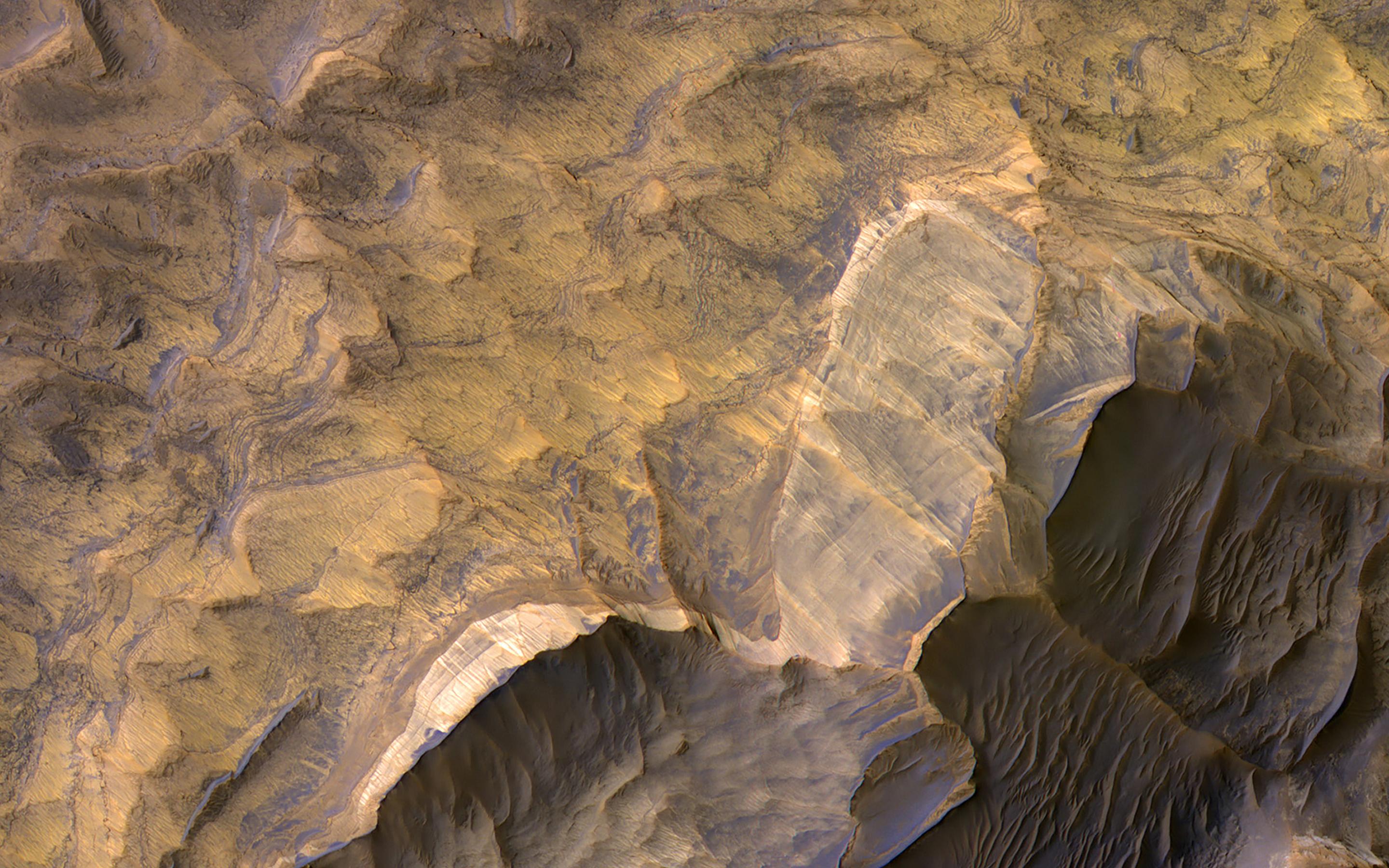
|
Sandstone in West Candor Chasma
- Click the image above for a larger view
- Full-Res JPEG (2880 x 1800) (701.1 kB)
- Full-Res TIFF (2880 x 1800) (15.6 MB)
Caption:

Map Projected Browse Image
Click on image for larger version
Candor Chasma in central Valles Marineris is filled with light-toned layered deposits thought to be sandstones , perhaps formed in an ancient wet and potentially habitable environment.
The CRISM instrument on MRO has acquired thousands high-resolution spectral images across Mars, often with simultaneous coverage by HiRISE, but sometimes, for a variety of reasons, without HiRISE coverage. We are now trying to complete coordinated coverage over such locations, to enable geologic interpretations based on both the compositional information of CRISM and the high-resolution imaging of HiRISE.
The map is projected here at a scale of 50 centimeters (19.7 inches) per pixel. (The original image scale is 52.5 centimeters [20.7 inches] per pixel [with 2 x 2 binning]; objects on the order of 157 centimeters [61.8 inches] across are resolved.) North is up.
Background Info:
The University of Arizona, in Tucson, operates HiRISE, which was built by Ball Aerospace & Technologies Corp., in Boulder, Colorado. NASA's Jet Propulsion Laboratory, a division of Caltech in Pasadena, California, manages the Mars Reconnaissance Orbiter Project for NASA's Science Mission Directorate, Washington.
Cataloging Keywords:
| Name | Value | Additional Values |
|---|---|---|
| Target | Mars | |
| System | ||
| Target Type | Planet | |
| Mission | Mars Reconnaissance Orbiter (MRO) | Mariner |
| Instrument Host | Mars Reconnaissance Orbiter | |
| Host Type | Orbiter | Flyby Spacecraft |
| Instrument | High Resolution Imaging Science Experiment (HiRISE) | Compact Reconnaissance Imaging Spectrometer for Mars (CRISM) |
| Detector | ||
| Extra Keywords | Color, Map | |
| Acquisition Date | ||
| Release Date | 2020-01-21 | |
| Date in Caption | ||
| Image Credit | NASA/JPL-Caltech/University of Arizona | |
| Source | photojournal.jpl.nasa.gov/catalog/PIA23676 | |
| Identifier | PIA23676 | |
